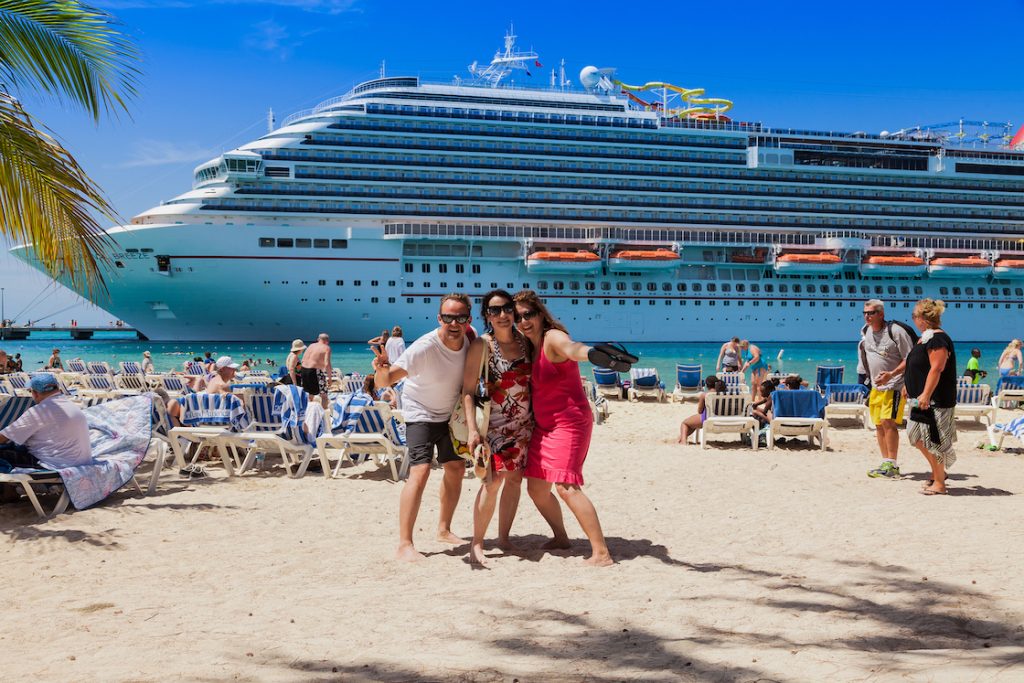
You’ve booked your trip and you’re raring to go: the first thing on your mind is a spa treatment and a drink on the deck—the last thing might be staying safe aboard your floating first-class hotel.
While it’s true that the cruise industry has instituted several new procedures and safety directives, as a passenger, the ultimate responsibility for your welfare lies with you.
What to do? Read on: here are some cruising top tips that go a long way in keeping the focus on the vacay and not on the worry.
Before you go, scan your passport and credit cards.
Email a copy to yourself so you can access it from anywhere and leave a copy at home with a relative or a friend. It makes replacing them that much easier if you need to. Take your bankcard’s international telephone number (800 US numbers don’t work overseas). Leaving a copy of your itinerary at home with someone you trust is also a good idea. And while we’re on the subject, don’t broadcast details of your travel on Facebook or Twitter, as tempting as that may be. Basically you’re announcing to the world that your house is empty, and in this day and age you never know who’s reading your online accounts. Wait till you get back and post away!
Go for plain when you buy luggage.
Expensive luggage might equal expensive contents in someone looking for something to steal. Make a list of your belongings just in case, and never pack your valuables or medication in checked luggage. While you will need to identify your bags (inside tags are important, too), don’t list your home address on the outside. Sharp-eyed thieves will take note and know where you live and that hello, you’re not home.
Attend all on-board safety briefings.
I’d also add “give the evacuation route card on the back of your door more than a cursory glance.” The news has been full of issues with cruise ships lately. These ships are usually gigantic and the last thing you want to be is lost in the maze of hallways should there be an emergency. It’s just a few minutes of your time and could make a world of difference.
Wash your hands often and take advantage of the hand sanitizer pumps.
Most ships nowadays have hand sanitizer dispensers sprinkled throughout the facilities—and for a reason. Approximately 10.3 million passengers embarked on a CLIA cruise ship from a U.S. port in 2012. There were 16 norovirus outbreaks reported to the CDC, involving a total of 2,791 ill passengers according to the CDC website. While this percentage is minimal compared to the 20 million norovirus cases in any typical year in the United States, you really don’t want to be the one stuck in the head while everyone else is headed off to a snorkeling adventure.
Use the in-room safe—with a caveat.
Don’t think just because your suitcase has a lock on it that it’s secure. Does your suitcase have a zipper? There are videos online that show how to open luggage using nothing more than a pen. (Don’t believe me? Check it out here: http://bit.ly/YkF2eT) Even locked safes aren’t always—for lack of a better word—safe. A quick check of the Internet and you’ll find plenty of stories of money and valuables stolen from locked safes. The remedy? Bring your own safe lock. While not inexpensive (the model we found from Milockie retails for $69.95) it’s well worth the investment.
Keep your common sense with you, always.
Cruising can be synonymous with “boozing,” and while no one expects you to be a teetotaler, just because you don’t have to drive home it doesn’t mean you can throw caution to the wind. The ship is filled with strangers—including the staff—and some of them might be tempted to take advantage of you if you let your guard too far down. I’ll add don’t leave your drink unattended, don’t accept drinks from strangers and certainly don’t take them back to your cabin. We’ve all seen “Law & Order” and those episodes are based on true stories.
Buy travel insurance… And check it twice.
The right insurance can bail you out of any number of travel mishaps, from baggage delay or loss to trip interruption and medical expenses. Be sure to read the fine print to make sure it covers everything you need—many times credit card coverage isn’t quite enough and doesn’t include medical evacuation insurance. Keep in mind that most do not cover medical evacuation services, which will take you home in case of an accident or critical illness.







